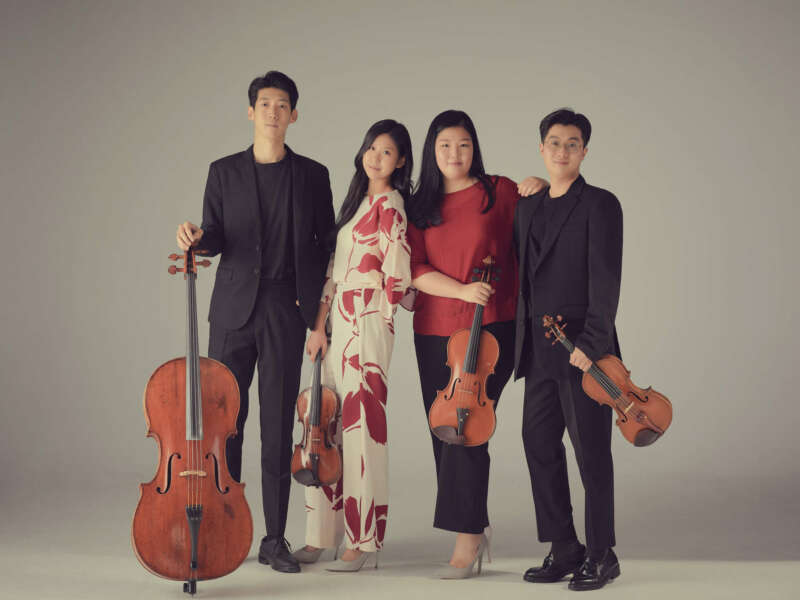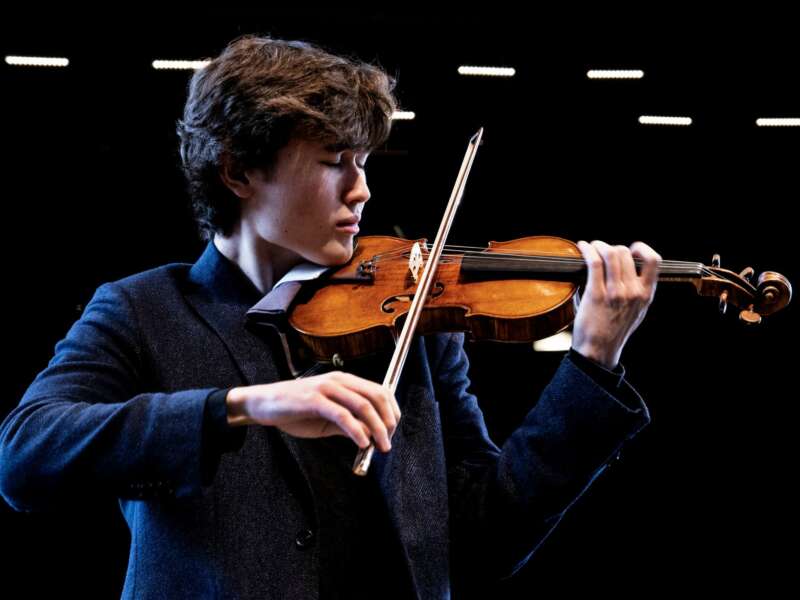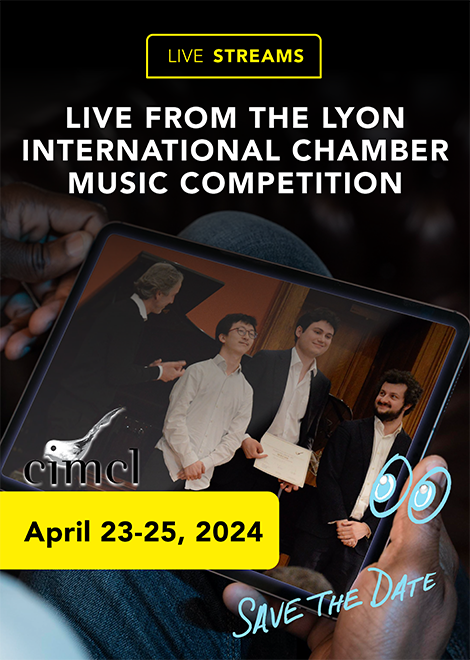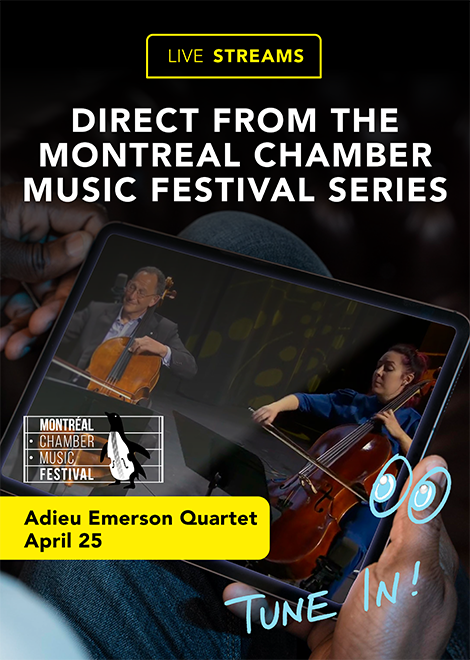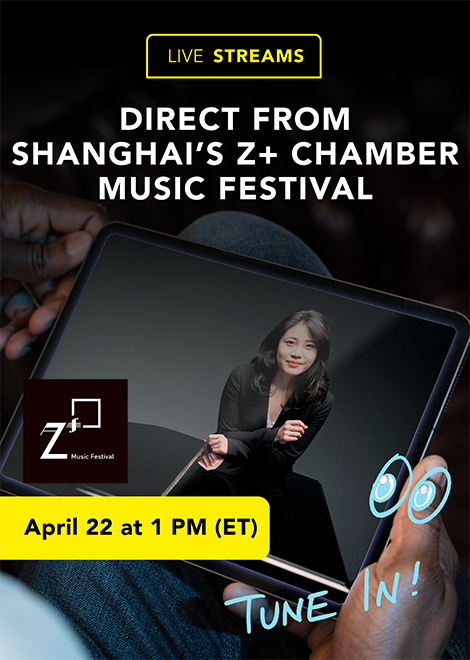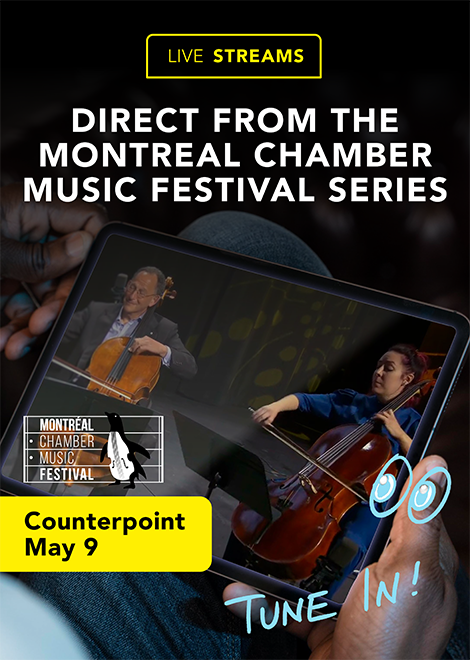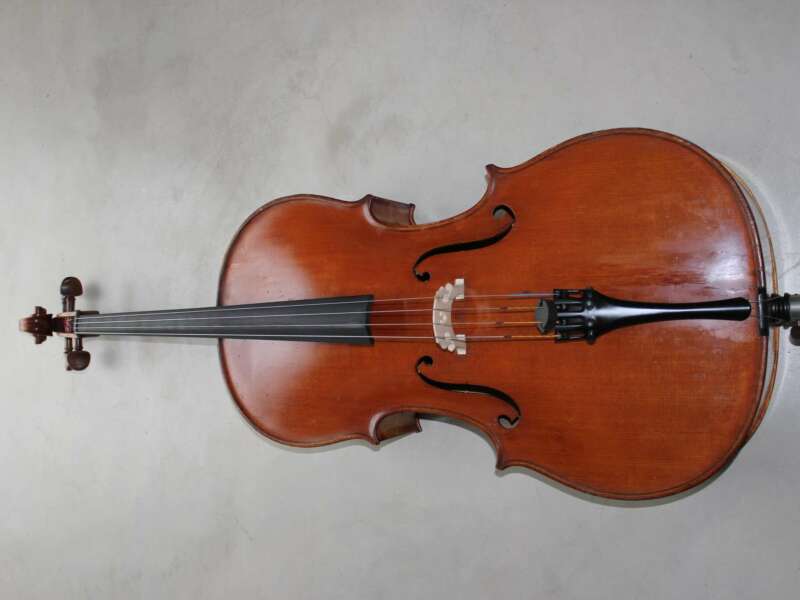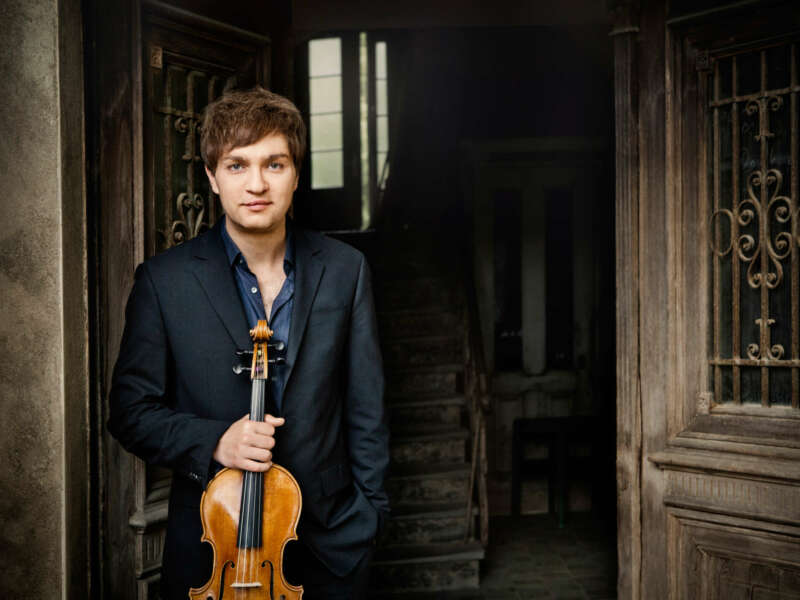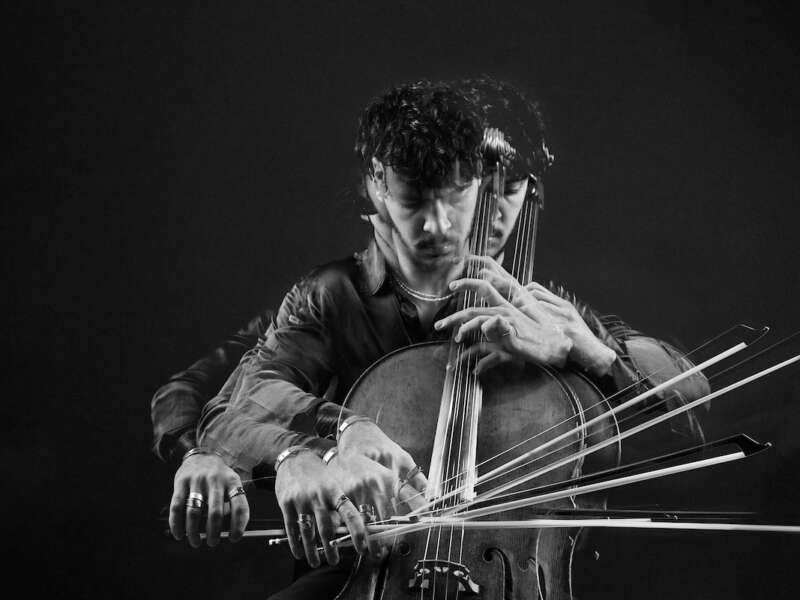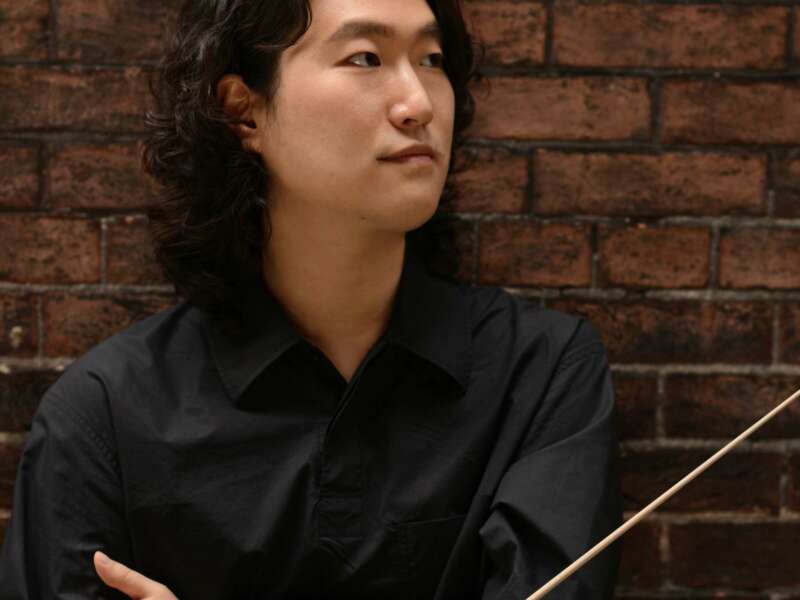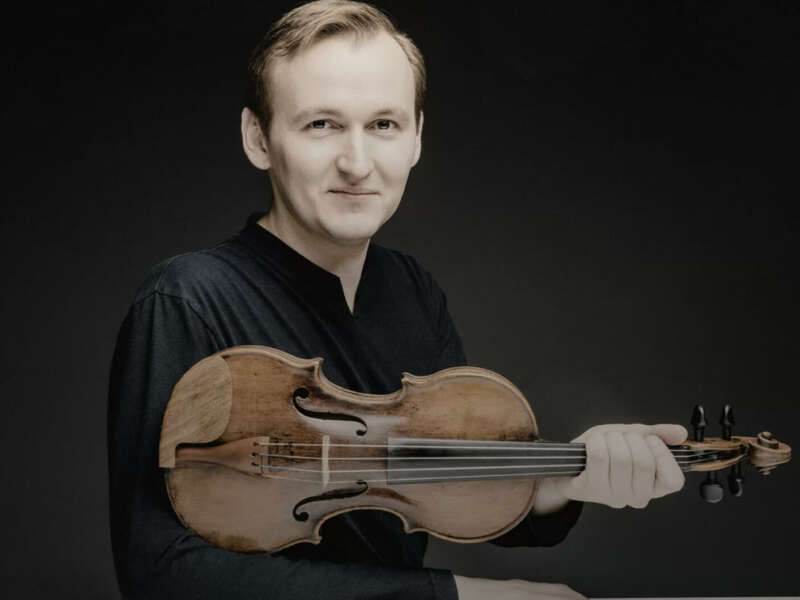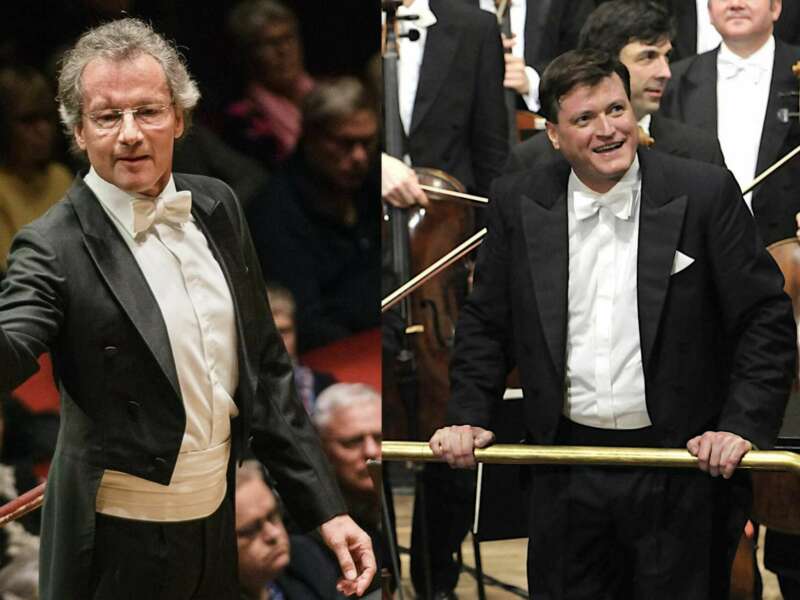Composer Gity Razaz on Her "Suite for solo string instruments"
The piece was commissioned by the 2023 Irving M. Klein International String Competition
This year's commissioned composer for the Irving M. Klein International String Competition was Iranian-American composer Gity Razaz. Throughout her illustrious career, she has been commissioned and had her work performed by Seattle Symphony, Milwaukee Symphony Orchestra, Washington National Opera, National Sawdust, Philadelphia Chamber Music Society, and violinists Jennifer Koh and Francesca DePasquale (both top Klein prizewinners).
Currently a member of the composition faculty at Mannes School of Music pre-college division, Razaz is a graduate of the Juilliard School under the tutelage of Samuel Adler, Robert Beaser, and John Corigliano. Recent highlights include a 2021 commission from the BBC Symphony Orchestra under Sakari Oramo for the Last Night of the BBC Proms and her accolades include the Andrew Imbrie Award from the American Academy of Arts and Letters, the Jerome Foundation award, the Libby Larsen Prize in 28th International Search for New Music Competition, the Milwaukee Symphony Orchestra Composer Institute, and Juilliard Composers’ Orchestra Competition, to name a few.
We sat down with Razaz to learn more about her compositional process and her work with the Klein Competition.
Can you tell us about the “Suite for solo string instruments,” commissioned by the Irving M. Klein International String Competition?
When I received the commission to write four solo string pieces for the Klein International String competition, I decided to compose a 4-6 minutes work for each instrument (violin, viola, cello, and bass) that would showcase the candidates’ virtuosity as well as musicality.
What was your inspiration for the work?
Each piece is inspired by a painting by the surrealist painter of Mexican / Spanish origin, Remedios Varo. I find her works beautiful and mysterious, and therefore perfect for stirring up the imagination of the candidates, encouraging them to bring their personal voice into the performance.
What musical elements were you hoping the candidates would be able to bring out? Did they successfully achieve this?
I was hoping for the candidates to get creative with musical interpretation (i.e. phrasing, rubato, etc.), and they did! Each painting assigned to the pieces (except for the double bass piece) has a musical reference. In the performance notes, I asked the candidates to study the paintings in order to further deepen their understanding of the pieces. They all brought different and intriguing interpretations into their playing.
You have composed many pieces for stringed instruments. Tell us about your experience writing for string soloists, and how you go about the process.
The process is pretty much the same as writing any other piece, be it a large chamber work or a solo composition. I always take a deep dive into the sound world of the particular ensemble / instrument I’m writing for. I listen to a lot music and try to attend concerts (or be physically in the presence of that particular instrument) so that I can soak up the sound and feel and even visual elements. Since I’m a pianist and I compose at the piano, I need to be able to hear and constantly imagine the instrument(s) I’m writing for, even though I’m just sitting at the piano.
How do you approach writing a new commission? Do you prefer direction and perimeters or a completely open creative process to extrapolate an idea?
Every commission I’ve done so far has come with some parameters — usually instrumentation and duration, and sometimes a broad theme or a general extra-musical idea. Writing for contemporary ballet and dance is a bit different however, as I get to work with a choreographer closely, and therefore my compositional decisions aren’t always just about the music.
What’s the best piece of advice you were given when starting out in this field?
Go to a lot of concerts and make friends with colleagues and classmates in school as they might become future collaborators.
What would be your advice for young composers today, who are hoping, like yourself, to make a full-time career from writing music?
Don’t be afraid to listen to music that’s different from your taste or style. You can learn a lot from composers who have different voices.
Here you can listen to 2023 third place winner, Japanese violinist (and pianist) Ray Ushikubo, performing the first movement of the Suite, "Creation of the birds":
may 2024


